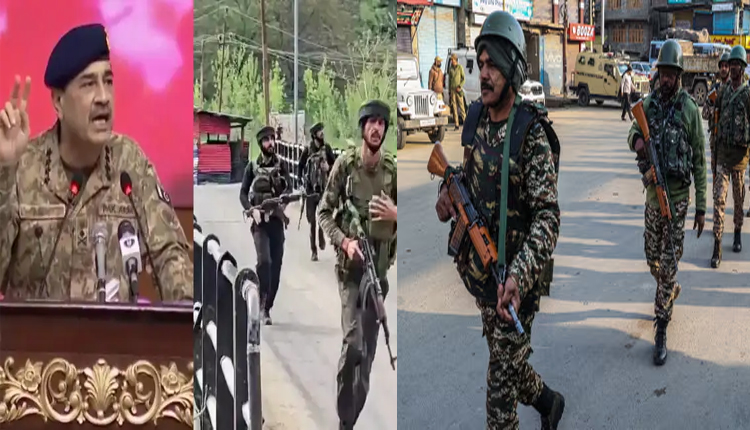New Delhi: On April 22 the terrorist invasion of Pahalgam, Jammu and Kashmir, resulted in the death of 26 citizens, which initiated a dangerous situation in India-Pakistan relations. The intensification of diplomatic and political attacks from India towards Pakistan led the Pakistani military to release a strong warning statement. When Indian aggression occurs,, Pakistani military forces plan to respond through a “robust and strategic” counteraction,, according to Lieutenant General Ahmad Sharif Chaudhry,, the Pakistani Army spokesperson who also increased war fears.
Pakistan’s Defiant Military Stance
General Chaudhry delivered a specific warning at the Islamabad press conference with Ishaq Dar,, saying that India could initiate attacks in chosen areas,, yet Pakistan would produce the ending point. General Chaudhry declared that the entire military force,, including all services,, stands ready to protect Pakistan through responses against all potential threats. Pakistan enhances border security at east and west points to demonstrate its readiness to stop any possible Indian military movement. Reports on the X platform (formerly Twitter) indicate that Pakistan is maintaining military readiness with plans for immediate responses.
Rejection of Pahalgam Attack Allegations
General Chaudhry reacted to Indian accusations about the Pahalgam attack by questioning why India rushed to name Pakistan as responsible. According to him,, examining this distant site from the Line of Control negated the idea that Pakistan could have operatedd quickly enough to conduct such an attack,, therefore contradicting India’s claims. The Pakistani defence authorities maintain there was no Pakistani involvement in the attacks while describing Indian allegations about political reasons behind the premature accusations.
Accusations of Political Manipulation
Chaudhry suggested without evidence that the governing party in India exploits terrorist attacks to support their electoral campaign before upcoming elections. India intentionally instigates anti-Muslim and anti-Pakistan sentiments to earn domestic support,, according to his statement. Chaudhry described how Pakistani prisoners at Indian gaols face death through fabricated encounters based on his knowledge of Muhammad Farooq’s alleged description as an infiltrator,, which led to his killing at Uri. The allegations seek to construct an image of India that plots a fabricated storyto launch attacks against Pakistan.
Context of Rising Hostilities
The Pahalgam attack,, which TRF claimed responsibility for,ity for, led India to take extreme measures by severing the Indus Water Treaty,osing the Wagah-Attari border and granting the militarytary full power to fight terrorism. The Pakistani military enhances its security posture due to Indian counterfalls and fears aerial strikes and covert terrorism interdiction activities. The Pakistani government released information on X about “credible intelligence” predicting that India would start military operations in the next 24-36 hours, which shows the situation remains tense.
The dangerous security situation is intensifying in a conflict-prone area as General Chaudhry delivers his warnings while Pakistan’s military increases its battle readiness. The ongoing tense situation between India and Pakistan grows more dangerous because both countries refuse to back down despite US calls for peace. The United Nations, together with the international community, continues to demand restraint, but existing tense relations between nuclear-powered Pakistan and India result in worries about wider military confrontations.



Comments are closed.